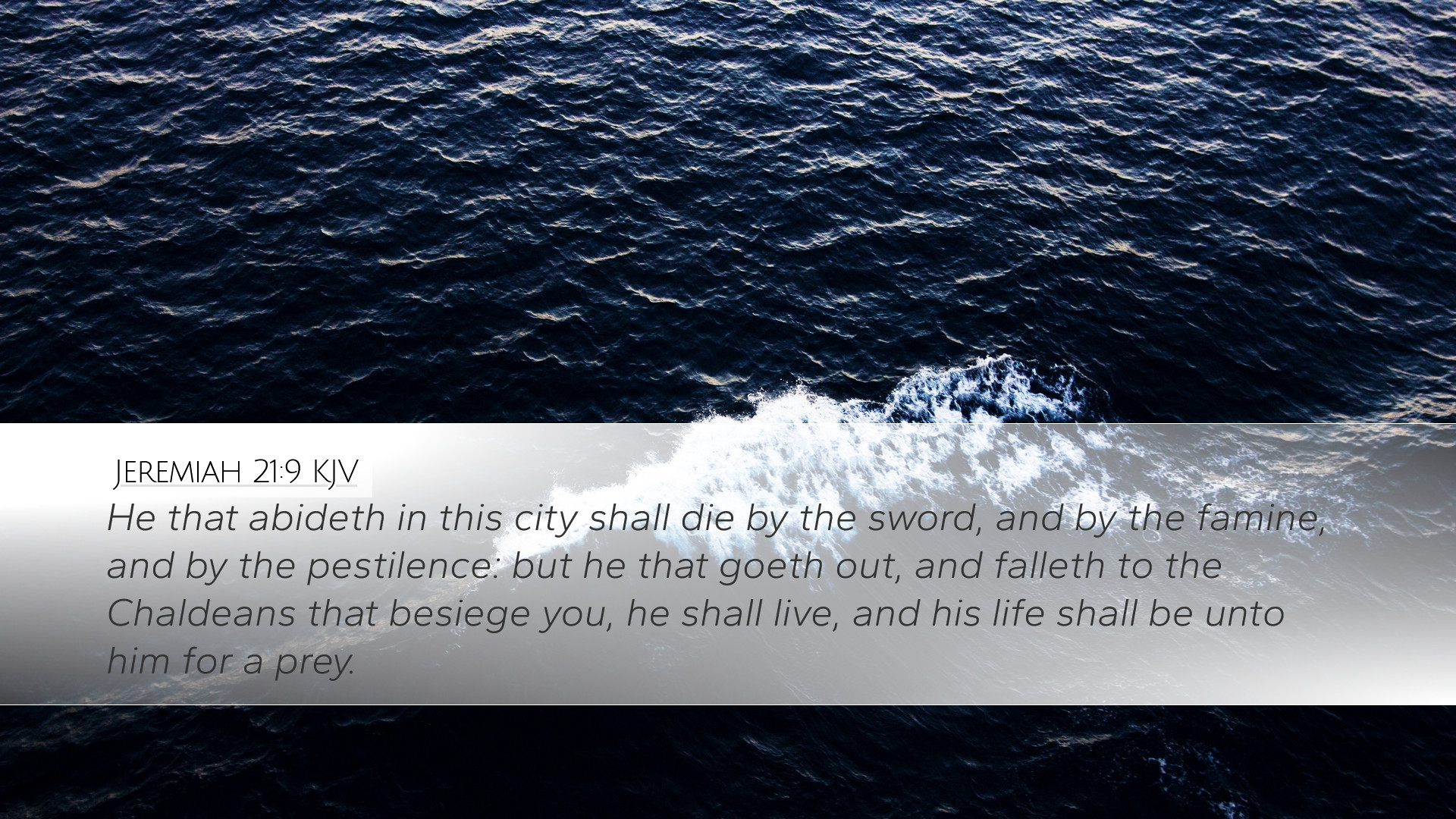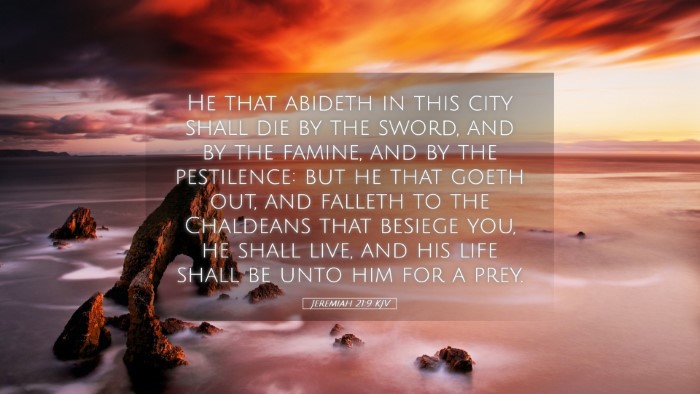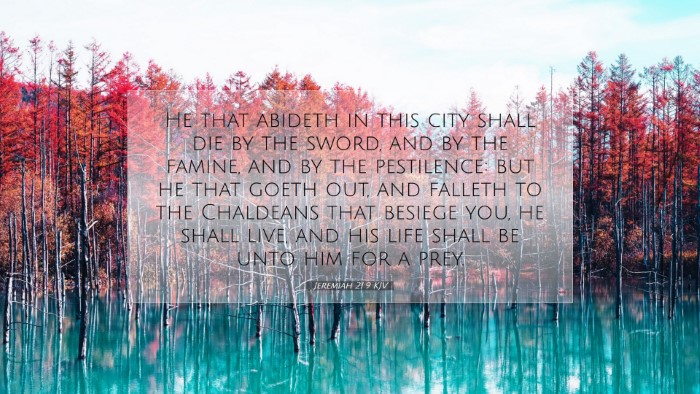Commentary on Jeremiah 21:9
Verse: Jeremiah 21:9
“He who stays in this city shall die by the sword, by famine, and by pestilence; but he who goes out and surrenders to the Chaldeans who are besieging you shall live and shall have his life as a prize of war.”
Introduction
This verse from Jeremiah highlights the dire situation faced by Jerusalem during the Babylonian siege. The prophet Jeremiah delivers a message from God that reveals the stark choice presented to the people—remain within the confines of the besieged city or surrender to the Babylonians. This dichotomy brings forward themes of hope, survival, and the dire consequences of rebellion against divine decree.
Contextual Background
Jeremiah served as a prophet during one of the most tumultuous times in Israel's history, where the nation faced impending doom due to its moral and spiritual failings. His prophetic messages often included warnings about the consequences of sin and the necessity for repentance. At this time, Jerusalem was under siege by King Nebuchadnezzar, and Jeremiah's words served to guide the people amidst chaos.
Analysis of the Text
1. The Promise of Death for the Defiant
Interpretation by Matthew Henry: Henry emphasizes that the choice to stay within the besieged city symbolizes obstinacy and rebellion against God's commands. The phrase “shall die by the sword, by famine, and by pestilence” illustrates the extent of the suffering that awaits those who refuse to heed God’s warning. Henry asserts that this reflects not merely physical death but also spiritual death due to disobedience.
2. The Call to Surrender
Insights from Albert Barnes: Barnes points out that the instruction to surrender to the Chaldeans may seem counterintuitive, but it highlights a sense of pragmatism divinely inspired. According to Barnes, God, in His mercy, offers a way out through surrender, which underscores His desire for the people's preservation rather than their destruction. This act of surrender symbolizes humility and submission to God’s will, which ultimately leads to life.
3. The Concept of Life as a Prize
Comments by Adam Clarke: Clarke elaborates on the phrase “shall have his life as a prize of war.” He indicates that the ones who surrender do not merely escape physical death but obtain a life that is valued and preserved against overwhelming odds. This life represents not just survival but also the potential for future restoration and hope in God’s plan. Clarke’s perspective invites deeper theological reflection on the nature of divine mercy where life is granted despite circumstances, reinforcing God’s benevolent character even in judgment.
Theological Implications
- Divine Sovereignty: This passage serves as a reminder of God's sovereignty over nations and individuals. The Babylonian siege represents God’s judgment, and He uses foreign powers to execute His plan.
- Choices and Consequences: The clear options presented to the people highlight the theme of free will. God does not force compliance; rather, He lays out the consequences of their choices.
- Hope amidst Judgment: Even in judgment, God offers a path to survival, illustrating His nature as a God who desires to redeem rather than condemn. This principle is essential for pastoral care and encourages believers to trust in God even in dire situations.
Pastoral Applications
For pastors and theologians, this passage serves as a profound reminder of the necessity of obedience to God’s will. In counseling contexts, it illustrates the importance of delivering messages of hope alongside judgments. The imperative to choose life in the face of destruction resonates with New Testament themes of salvation and redemption through Christ.
Conclusion
Jeremiah 21:9 encapsulates a pivotal moment in Israel's history and provides timeless lessons for today’s believers. The choice between life and death, rebellion and obedience, is a fundamental aspect of human experience. Through this commentary, it is apparent that God’s voice, as articulated through His prophets, beckons us always toward life, urging us to surrender to His will. This message is paramount for contemporary congregations as it speaks to the heart of faith: trusting in God's overarching plan and mercy, even in the face of overwhelming odds.


